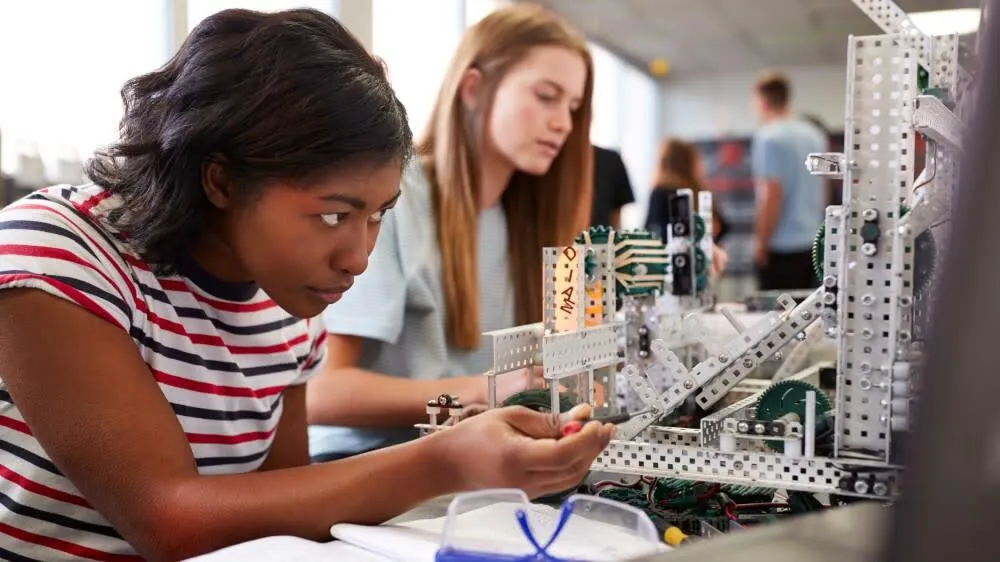Is Vocational School as Good as College?
In the tapestry of educational pathways, vocational schools and traditional colleges are often viewed as distinctly different threads, each weaving its own unique pattern in the fabric of learning. However, the question of whether a vocational institute holds the same value as a college is akin to comparing the art of sculpture to painting both are forms of art, yet their methods, materials, and outcomes vary significantly.
The Sculptors of Specific Skills: The Vocational Path
Vocational schools, akin to sculptors, chisel away at the superfluous, focusing intently on shaping students with the specific skills required in various trades. For those with a clear vision of their desired career, especially in fields such as electric work, plumbing, culinary arts, or automotive technology, vocational training offers a direct and pragmatic path.
Consider the story of Elena, a culinary student at a vocational institute. Within two years, she mastered the art of culinary techniques, food safety regulations, and kitchen management, skills directly applicable to her dream of becoming a chef. In contrast, a four-year college degree in culinary arts may delve into the history of cuisine or the science of food, which, while enriching, may not be essential for Elena’s specific career goals.
The Canvas of Broader Knowledge: The College Experience
On the other side of the spectrum, traditional colleges are like painters who cover a broader canvas, exploring various subjects and theories. They offer an expansive education, delving into the depths of philosophy, history, science, and literature. This approach is ideal for those who seek not just a career but an extensive pursuit of knowledge, preparing them for roles in research, academia, or fields where a broad understanding is advantageous.
Take, for instance, Alex, who pursued a degree in environmental science. His college education provided him with a comprehensive understanding of ecosystems, climate change policies, and sustainable technologies. This broad knowledge base equipped him for a career in environmental policy, where understanding the interplay of science, society, and legislation is crucial.
Cost Consideration: A Decisive Factor
A critical element in this comparison is the cost of education. Vocational training often requires a significantly lower financial investment compared to traditional four-year colleges. This aspect is crucial for students like Elena, who might not have the resources or the desire to invest in a lengthy and expensive college education. The quicker completion time of vocational programs also means entering the workforce earlier, which can be a significant advantage in terms of earnings and career progression.
Flexibility and Specialization: The Vocational Advantage
Vocational schools offer a level of flexibility and specialization that traditional colleges may not. Programs are often designed to accommodate working adults or those looking to change careers. This flexibility allows students to gain skills in a specific field without committing to a full-time, multi-year program. The specialized nature of vocational training ensures that students are job-ready, with practical skills tailored to specific industries.
The College Advantage: A Diverse Skill Set
However, college education offers its own set of advantages. The diverse range of subjects studied helps in developing a well-rounded skill set, including critical thinking, analytical skills, and a broader worldview. These skills are invaluable in many professional roles, especially those that require adaptability and a capacity for complex problem-solving.
Conclusion: A Matter of Personal and Professional Goals
Ultimately, whether vocational school is as good as college depends on personal and professional goals. If the objective is to acquire specific skills for a particular trade quickly and cost-effectively, vocational training is an excellent choice. However, for those seeking a broad base of knowledge and a diverse skill set, a traditional college education might be more suitable.
Like sculptors and painters choosing their medium and techniques based on what they wish to express, students must select their educational paths based on what they wish to achieve in their careers and lives. Both vocational schools and traditional colleges have their unique merits, and the choice between them should be guided by individual aspirations, circumstances, and interests.
